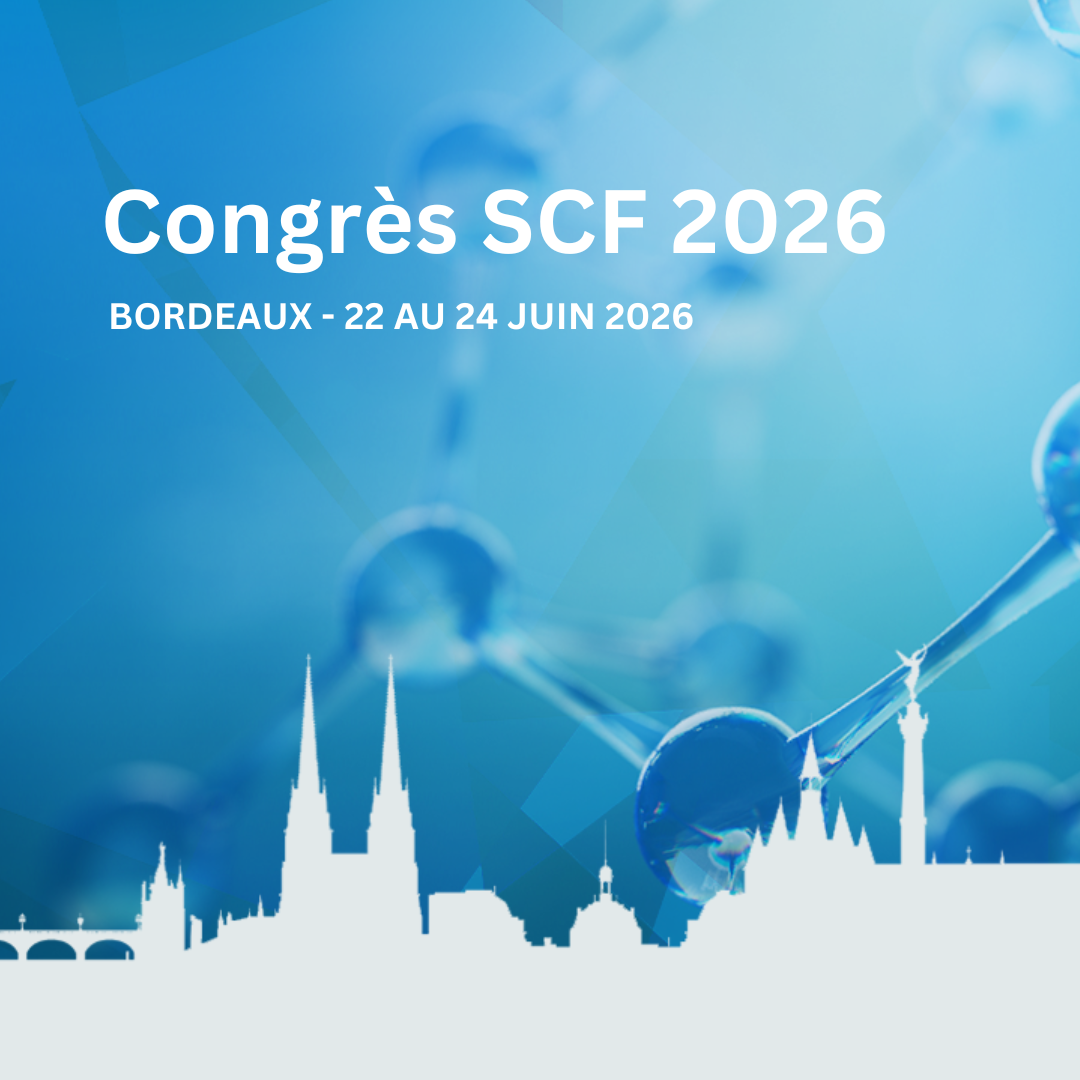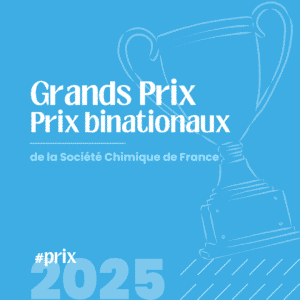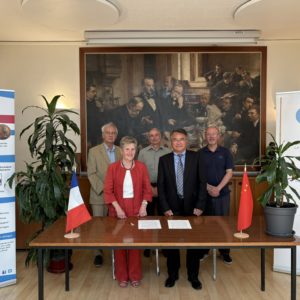Le Professeur Can Li est Directeur du Dalian National Laboratory for Clean Energy, State Key Laboratory of Catalysis. C’est à Dalian qu’il a développé ses activités de recherche depuis1993, après une riche formation postdoctorale internationale en Belgique, USA, UK, Japon et France.
Le Professeur Can Li bénéficie d’une reconnaissance nationale et internationale exceptionnelle dans le domaine de la catalyse, de la photocatalyse et des matériaux associés. Can Li est notamment reconnu pour ses études de réactions de photocatalyse sur nanoparticules, avec une approche très physique des semi-conducteurs et des séparations de charges aux jonctions de phases, sur des photocatalyseurs modèles, d’orientations cristallographiques différentes. Il y exploite des techniques physicochimiques (surface photovoltage spectroscopy (SRSPVS) couplées à la microscopie à force atomique, apportant une compréhension, à l’échelle atomique, des mécanismes de photocatalyse. Il a beaucoup travaillé sur la corrélation structure du catalyseur-réactivité, le conduisant à développer des techniques très poussées de caractérisation
Une de ses contributions originales est la notion de co-catalyseurs (oxydation et réduction) en photocatalyse. Une application importante est la production de “solar fuels” pour produire de l’hydrogène vert, soit par photocatalyse, photoelectrocatalyse ou électrolyse de l’eau sous énergie solaire. Sur des sujets importants comme la production d’hydrogène et la conversion de CO2 Can Li a transféré les résultats de sa recherche très amont à des développements technologiques avec l’industrie et il a participé à la mise en place d’une unité de production de méthanol et de H2, par photocatalyse. Il est aujourd’hui Directeur d’un programme national sur la Photosynthèse artificielle.
Un autre de ses domaines de recherche concerne les zéolithes et la nature des ions métalliques, contribuant à l’empoisonnement des catalyseurs. Ceci lui valut the “international catalysis award » (décernée tous les 4 ans, lors du congrès ICC) à Paris en 2004.
Le professeur Can Li a reçu de très nombreuses récompenses nationales et internationales, parmi lesquelles on peut citer son élection à la Chinese Academy of Sciences (2003), sa nomination Fellow of Royal Chemical Society (2005) et aussi son élection Foreign Member of Academia Europaea (2008)
Le Pr. Can Li a entretenu des relations soutenues avec les équipes de catalyse françaises. Il a été Professeur invité en 2003 à l’Université Pierre et Marie Curie et durant une dizaine d’années (2000-2011) il a été directeur (pour la partie chinoise) d’un LIA Franco-Chinois du CNRS et de plusieurs universités chinoises, entretenant ainsi des relations suivies, et favorisant de nombreux échanges avec les plus grands laboratoires de catalyse français.
Professor Can Li received his Ph.D. degree in Physical Chemistry from Dalian Institute of Chemical Physics, Chinese Academy of Sciences, in a cooperation program with Tokyo Institute of Technology, Japan, in 1989, and he joined the same institute and was promoted to full professor in 1993. He did postdoctoral research at Northwestern University USA and was visiting professor at Lehigh University, the University of Liverpool, and The Queensland University, and he was awarded the JSPS Professor, visiting Waseda University, Tokyo University of Technology, and Hokkaido University. He was the honorary professor of Queensland University, Australia and Baptist University, Hong Kong. He is the director in China side of the Joint Laboratory of France-China on Catalysis since 2000 which is the first joint laboratory in the field of catalysis between China and France, with the participation of 13 institutes and universities from both countries. In 2003, he was awarded an invited professor at Université Pierre et Marie Curie, Paris VI.
He was elected as a member of the Chinese Academy of Sciences in 2003, a member of the Academy of Science for Developing Countries (TWAS) in 2005, a foreign member of Academia European in 2008, and a Fellow of the Royal Society of Chemistry in 2008. He was the President of the International Association of Catalysis Societies (2008-2012) and the president of the Asia-Pacific Association of Catalysis Societies (2013-2017). Currently, he is the chairman of Catalysis Society of China, Dean of Materials and Chemical School of USTC, and the director of the Solar Energy Division, DICP, CAS. He was been appointed to the director leading a national program on fundamental research center of “artificial photosynthesis” by National Natural Science Foundation of China.
Among the prestigious awards and honors recognizing his research include International Catalysis Award (at the 13th International Congress on Catalysis in Paris in 2004, which is only awarded every four years), the National Natural Science Prize of China, National Catalysis Award of China, the Ho Leung Ho Lee Prize (Hong Kong), National Petrochemical Prize, National Outstanding Scientist Award, Japanese Photochemistry Association Elsevier Lectureship Award, Achievement Award of the Spectroscopy Society of China, the Advance of Catalysis Award of the Asian-Pacific Association of Catalysis Societies and Mission Innovation Champions, etc.
His research interests span spectroscopic characterization of catalysts and catalytic reactions, environmental catalysis, heterogeneous chiral catalysis. Over last 20 years, his research was focused on photocatalytic, photoelectrocatalytic and electrolysis water splitting and CO2 reduction utilizing renewable energy (including solar, wind and hydro energy). He is theEditor-in-Chiefs of Chinese Journal of Catalysis, and an associate editor of Chemical Communication, and serves as editorial members of a dozen international journals. He has more than 800 peer-reviewed papers with over 32000 citations, ~90 granted patents and over 100 plenary and keynote lectures at international conferences.

 Présentation
Présentation  Entités
Entités  Partenaires
Partenaires  Histoire de la SCF
Histoire de la SCF  Gouvernance
Gouvernance  Industrie
Industrie 


